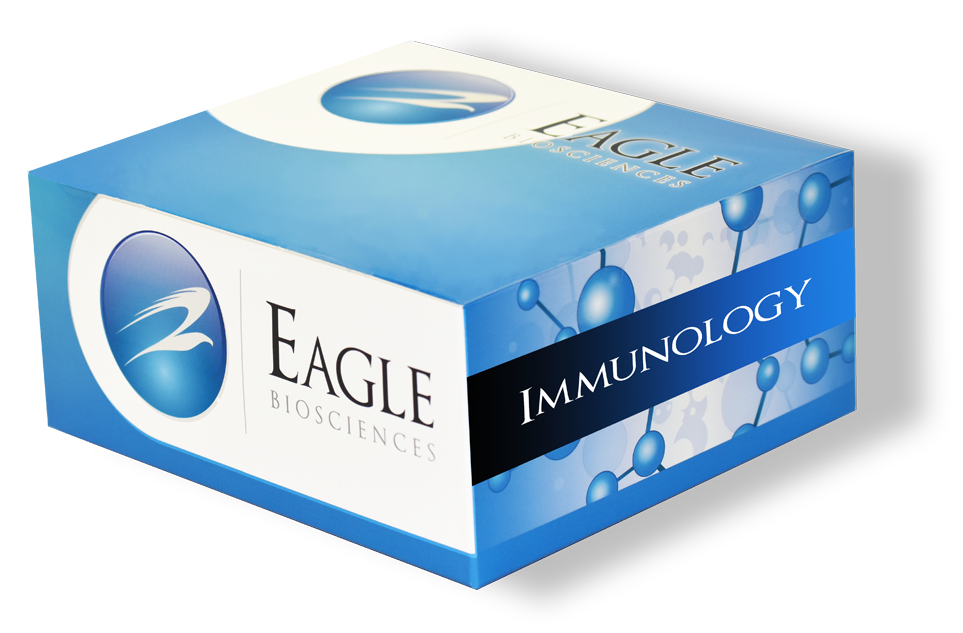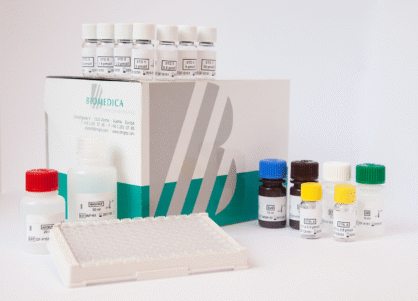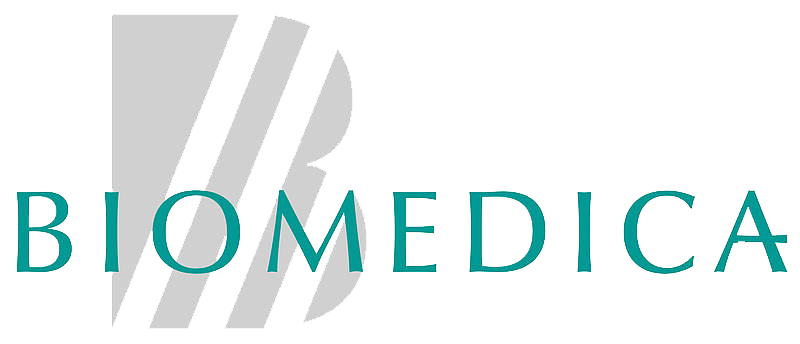CIC C1q ELISA Kit
The complement system is a biochemical cascade of the immune system that helps clear pathogens from an organism. It is derived from many small plasma proteins that work together to form the primary end result of cytolysis by disrupting the target cell’s plasma membrane.
Activation of this system leads to cytolysis, chemotaxis, opsonization, immune clearance, and inflammation, as well as the marking of pathogens for phagocytosis. The complement system consists of more than 35 soluble and cell-bound proteins, 12 of which are directly involved in the complement pathways. The proteins account for 5% of the serum globulin fraction. The complement proteins are synthesized mainly by hepatocytes; however, significant amounts are also produced by monocytes, macrophages, and epithelial cells in the gastrointestinal and genitourinary tracts.
C1q is involved in the classical complement pathway. The classical pathway is triggered by activation of the C1-complex (which consists of one molecule C1q and two molecules C1r and C1s), either by C1q’s binding to antibodies from classes M and G, complexed with antigens, or by its binding C1q to the surface of the pathogen.
The complement system might play a role in many diseases with an immune component, such as Barraquer-Simons Syndrome, Alzheimer’s disease, asthma, lupus erythematosus, various forms of arthritis, autoimmune heart disease and multiple sclerosis. Deficiencies in the terminal pathway predispose to both autoimmune disease and infections (particularly meningitis).
There are many tests for the determination of CIC, included the test of precipitation with PEG, radial immunodiffusion, and cellular tests like the test of Ray cell. Does not exist one procedure to determinate all types of immunocomplex; in commerce exist some test to determinate fragments of the complex (e.g. C1q and C3d) that have an important diagnostic function.
This CIC C1q ELISA Kit is manufactured in Italy by Diametra.




